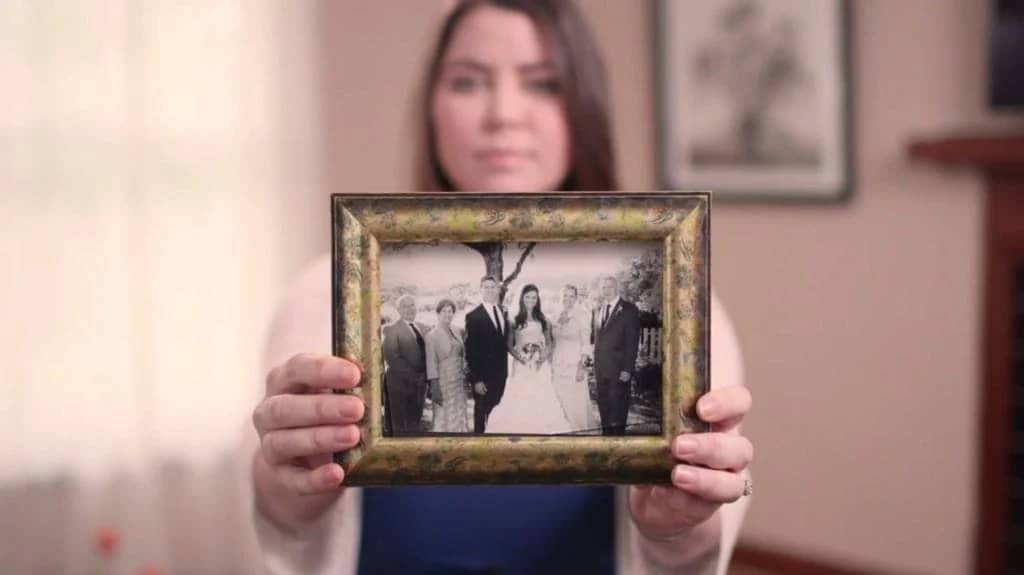
My late husband Shannon Swanson was an ardent supporter of the right to choose medical aid in dying. Shannon and I lived in Sheridan County, Montana. He was an Air Force veteran, a firefighter, a hunter, a family man – just a regular Montanan. He died in 2007, at age 43, with anger that many in our society did not see fit to trust his judgment on his needs in his final days. He would have been happy to know that two years after he died our Supreme Court upheld the Baxter v. Montana decision, which upheld the right to medical aid in dying in Montana.
Shannon and I were both wildlife biologists, worked for the U.S. Fish and Wildlife Service and met during a work training. He was a brilliant yet humble person. He was filled with compassion for others and a passion for life in general. He led an active life and his loves included bird-watching, hunting and fishing, gardening, woodworking, scuba diving, sailing and traveling. He was equally active in intellectual pursuits, as an avid reader, a connoisseur of music, and a contemplative student of science and politics.
In 2004, when Shannon sought medical attention for what he thought was carpal tunnel syndrome in his right hand he was shocked and devastated to learn that he had ALS, also known as Lou Gehrig’s disease – an absolutely debilitating, terminal illness with no cure. He was told he likely only had three to five years to live and to get his affairs in order.
Determined to make the most of his limited time to enjoy the physical activities that he would soon be unable to do, Shannon retired immediately after his diagnosis. He purchased a sailboat, a lifelong dream, which we sailed from San Diego to Mexico with his brother, and our devoted dog Runa. He traveled, hunted, continued woodworking and lived life to the fullest for a year and a half before the complications of ALS set in fully.
Shannon gradually lost control of all his voluntary muscles, to the point where he could not even nod his head nor smile. He had a feeding tube inserted, yet still continually choked on his saliva. His mind remained sharp, though he could not talk nor even make any sound. Despite his paralysis, painful muscle spasms wracked his body. Through all this, he remained a loving and happy man to the end, using a computer he controlled with only his pupils to communicate his needs. He wasn’t ready to die, but he knew there was no hope, and he was terribly anxious about the loss of control as he faced this painful dying process.
We fought for three years with an army of nurses to keep Shannon comfortable as his body succumbed to this horrible disease. It was a frustrating, painful, and, of course, ultimately unsuccessful endeavor.
When he was diagnosed, Shannon’s immediate and understandable fear was being trapped, paralyzed and unable to control his own destiny. He knew it would get unbearable and wanted desperately to know he would have some lawful option to end his suffering. We had many discussions about it. At that time Montana law did not yet protect physicians who prescribed aid-in-dying medications. The inability to control his quality of life and destiny compounded his suffering. He had the finest hospice care for over a year during his advanced stages, yet he suffered mightily.
During his final months of life Shannon had repeated bouts of pneumonia, which were absolutely unbearable. He chose to treat it at first, but by the sixth time over a span of just a few months, Shannon was ready to go. He could no longer stand the pain and chose not to treat his pneumonia, and that’s when he passed away.
Having the option of medical aid in dying would have lessened both of our anxieties throughout those three years. Shannon and I even discussed relocating to Oregon, where this was legal, but Montana was our home. Our family and friends were nearby and we were connected with the prairie, the landscape and our community. This is where we wanted to live out our lives.
It saddens me that Shannon died before medical aid in dying became a protected end-of-life option in Montana, but it saddens me even more to know that each legislative session this important option is challenged in Montana. Privacy, autonomy and dignity in life and death are such important tenets of Montana’s constitution and culture. Terminally ill individuals should be able to count on this humane option. They should not be filled with the fear and anxiety that Shannon and I suffered.

Nothing advances our common cause of improving end-of-life care like real stories. Inspire others and drive change by sharing your story today.
Mail contributions directly to:
Compassion & Choices Gift Processing Center
PO Box 485
Etna, NH 03750